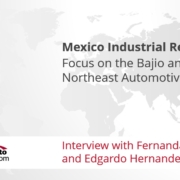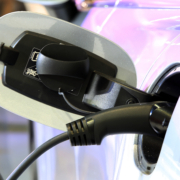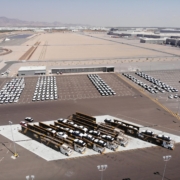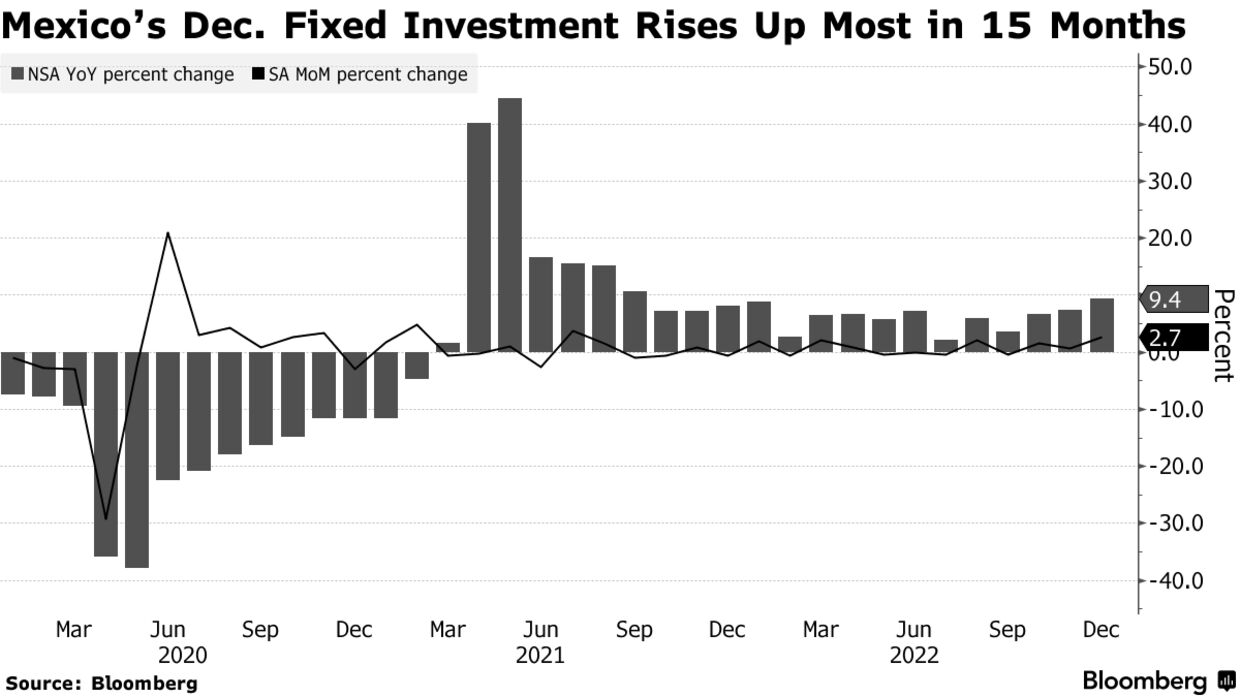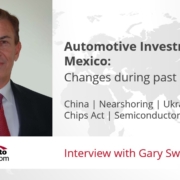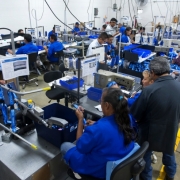In this GlobalAutoIndustry.com Audio Interview “Insights on Mexico Industrial Real Estate: Focus on the Bajio and Northeast Automotive Regions – June 2023” Ron Hesse Interviews Fernanda Martinez and Edgardo Hernandez, Regional Directors with NAI Mexico.
GlobalAutoIndustry.com’s latest Audio Interview “Insights on Mexico Industrial Real Estate: Focus on the Bajio and Northeast Automotive Regions – June 2023” features Fernanda Martinez and Edgardo Hernandez, both with NAI Mexico. Ms. Martinez is Regional Director serving the Bajio Region, and Edgardo Hernandez is Regional Director serving the Northeast Region. NAI Mexico, part of the NAI Global network, is a leading industrial and commercial real estate firm, and operates 25 offices across Mexico and works with global customers, including many in the automotive industry.
Audio Interview Guest
Ms. Fernanda Martinez, Regional Director – Bajio Region
Mr. Edgardo Hernandez, Regional Director – Northeast Region
NAI Mexico
To download transcript of this Interview, please click here.
In the 9-minute Audio Interview, Ms. Martinez and Mr. Hernandez discusses these questions:
• Fernanda, what is the latest news, or what are recent trends regarding industrial & commercial real estate in the Bajio Region, including Queretaro and Guanajuato?
• Fernanda, how do you see the automotive industry’s impact on the local industrial real estate market?
• Edgardo, what is the latest news, or what are recent trends regarding industrial & commercial real estate in the Northeast Region, including Monterrey and Saltillo?
• Edgardo, how do you see the automotive industry’s impact on the local industrial real estate market?
About Ms. Fernanda Martinez and Mr. Edgardo Hernandez:
Regional Directors, NAIMexico
Ms. Martinez is the Regional Manager for the Bajio Region offices; she oversees projects in Queretaro, San Luis Potosi and Guanajuato. She specializes in Industrial Real Estate planning, acquisition and sales. The planning includes comparing existing operations in Mexico vs. other global locations. She is experienced in all facets of tenant/buyer and owner representation. As a commercial real estate broker in Mexico, she has completed land sales, facility lease and build to suit transactions in North and Central Mexico.
Mr. Hernandez is based in Monterrey/Saltillo, North East Mexico region. Through his 11 years representing global firms in Mexico, Mr. Hernandez offers senior transaction, advisory, investment and project management experience to support every client requirement. Edgardo co-leads a senior 5 member team, with an average experience level of 12 years per person. The team delivers integrated planning and implementation for industrial, retail, and office services. Edgardo’s real estate practice includes fully integrated industrial real estate solutions, including: Tenant Representation, Agency Representation, Build-To- Suit transactions, Project Bid Management, Financial Analysis and Valuation Services. His experience includes aerospace, automotive, medical device, electronics and all industrial sectors, often with Fortune 100 firms.

